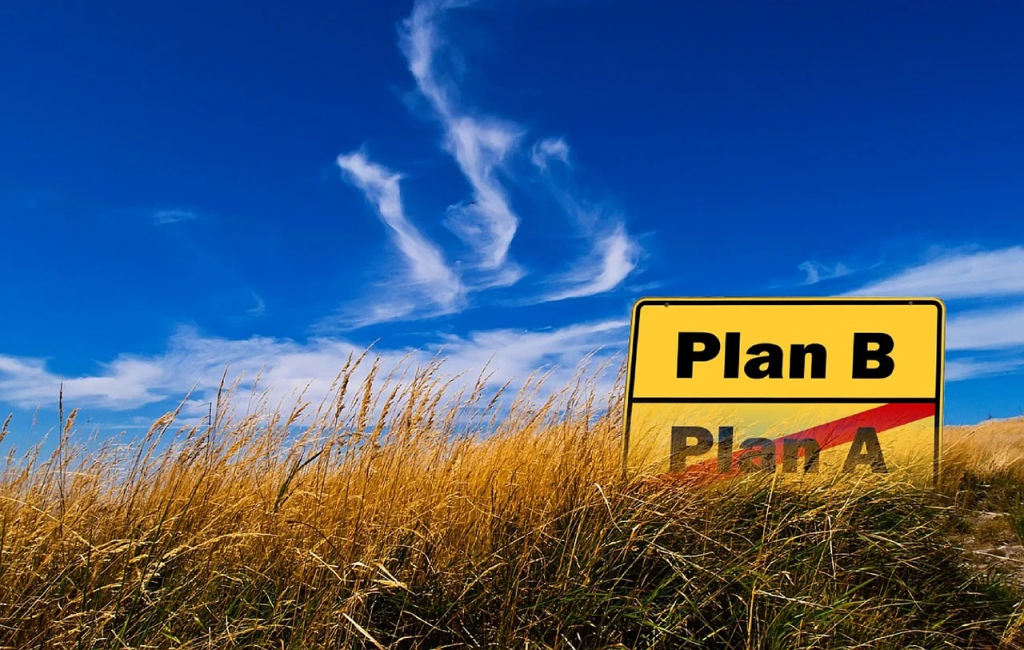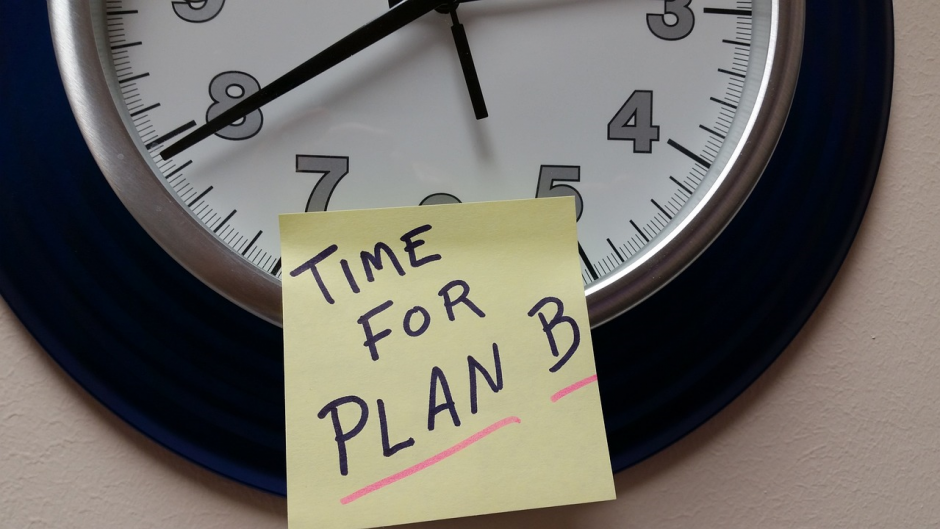And why is it important to have one
Plan B can be translated into the question ‚‚What’s the worst that can happen‚‚ although it is not exactly the same as the plan itself.
Basically, a plan B means having a ‚‚reserve‚‚ or knowing what we will do in case things go wrong. And the question of „What’s the worst that can happen“ is about ourselves and about „calming down“ in case we get too excited or have high hopes for plan A. So it’s useful to ask ourselves what is so terrible that will (eventually) happen if A does not happen. And then the brain, which normally likes questions, starts to give some answers… Some of them may be real, some are based on our ‚‚feeling‚‚ which may or may not be real, etc. In any case, what is important to clarify is: is our life in danger if A does not happen? Are our loved ones at risk? Will we suffer some dire consequences? Will someone attack us if we give up the plan A? Will we suffer irreparable financial damage? The answer to all these and many other questions is most likely NO, none of that will happen. However, despite the fact that the answer is NO, in the essence of human beings there is fear… Fear of the unknown, fear of the future, fear of this and that… That’s why plan B is so closely related to the question, „What’s the worst that can happen“. Precisely to ‚‚calm us down‚‚ and to restore our self-confidence.
Let’s take an example to see how this method works in every day life and how we can strengthen our confidence:
– we go to negotiations and our goal is to achieve plan A.
– but of course, we are afraid that the other side will not accept our proposal or our terms.
– then, we simply apply this method step by step and along the way we ask ourselves: „What’s the worst that can happen?“
– the next phase: the brain gives (some) answers – realistic or not, that doesn’t matter at this moment, let it be so unrealistic that it is the worst of all… Let it be, for example, that in the event that plan A is not realized and we lose that client or that project, that it will damage our reputation so much that we will not acquire any more clients in that branche
– and then comes the third step: plan B. Plan B can be anything that gives you self-confidence at that moment: that you will go to the countryside, develop agriculture, rely on your parents, partner, whoever, turn your hobby into a business, open your own company or to get a job in another sector… Anything that would mean that YOU HAVE AN ALTERNATIVE and that your career will not come to an end just because of that one single plan A.
Because, most people think exactly like that: every time (but every) when embark on something new, they get nervous and go to negotiations as if it were a matter of life and death. And the other side, oh yes, they can feel it… And most often they use it or even abuse it in order to exert pressure, lower the price, blackmail us in any way and achieve their own goals… That’s why that plan B is so important; and it can be only in your head – you don’t have to start and develop it on the field. It is about the feeling with which you go to achieve something; about whether you have the wind at your back or not; whether you come out full of confidence or not; are you sending signals to the other party that they are not that important to you (because you have so many other options), or is the message that you are emitting (with your body language as well): ‚‚whatever you offer, I’ll agree to that‚‚ which, we’ll admit, are two completely different things.
Progress is made from a position of self-confidence and a nonchalant approach to things – and even better, without much expectation; keep a cool head, defending your position (real or imaginary), valuing yourself and not rushing headlong into everything new, and especially not like a drowning man grasping at straws.
Because whoever has a plan B doesn’t even need a straw. He breathes on the wings of his alternative choices!





